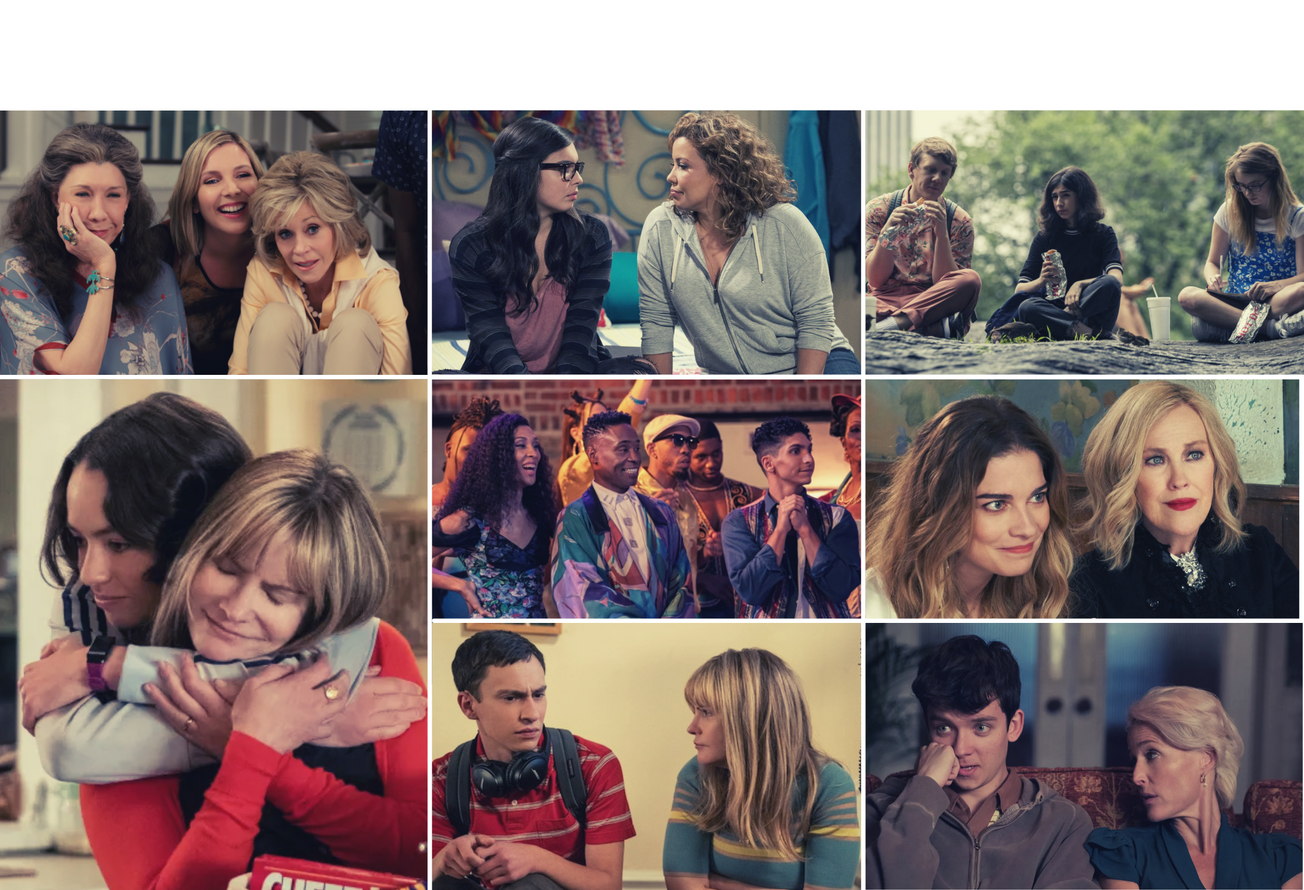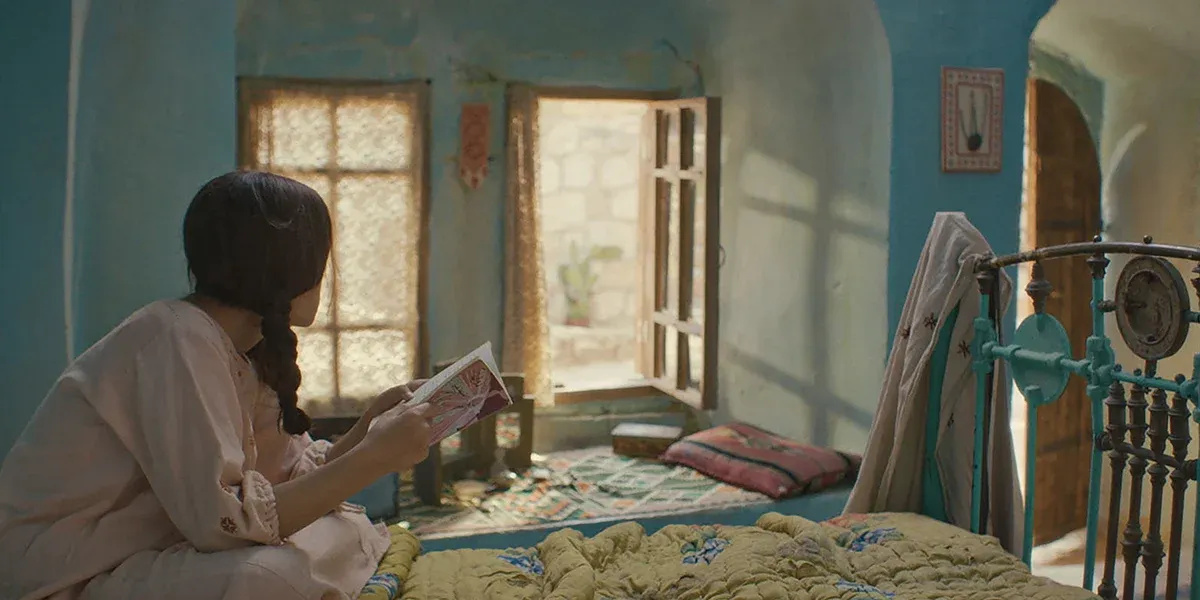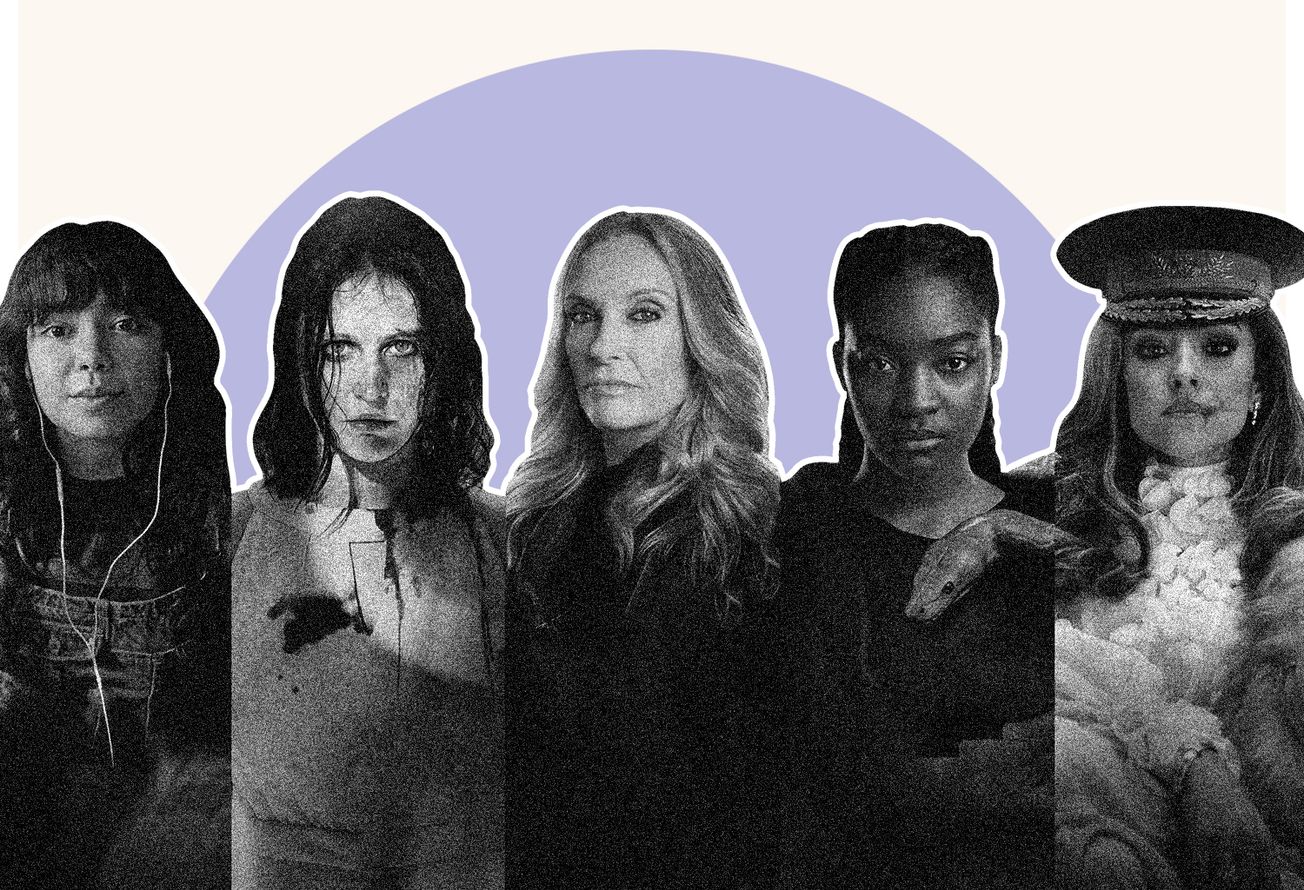In a vulnerable moment on the show Grace and Frankie, 77-year-old Grace (played by Jane Fonda) calls up her elder daughter Brianna and asks, “When you were a kid, you felt loved, right? I mean, you know, unconditionally. Huh?” Brianna replies, “Uh, well, no, Mom. But it makes sense. You’re not very unconditional with yourself.” Grace finishes up the conversation, gutted, as if she has suddenly discovered an open secret. Moments ago, she had been accused of only liking people whose actions she approves of. To her, that represents a strong "moral standard." Quite often in the show, one character’s narrative is upended by someone else saying their truth: early on, the protagonists’ lives transform because their husbands reveal that they've been having an affair with each other and now plan to get married. This moment, in particular, represents a tussle that has been playing out recently on television. It asks: is there a parenting healthier than a righteous, moralistic, and disciplining parenting that polices children’s choices?
This isn’t new to us. Parents, brought up in moralistic cultures themselves, reproduce the cycle. Families across socioeconomic and cultural backgrounds in India have a tough time recognizing the individuality, separateness, and autonomy of children, regardless of age. Parents here are enmeshed in the lives of their children, often to a stifling degree. How much to eat, what to pursue, how to dress, whom to marry, our own morals—none of these choices are ours to make. Young people routinely struggle with issues around approval, self-esteem, relationships, and independence and often end up leading double lives. Families pressuring people into decisions, eavesdropping, manipulating, disowning, or using the law against children who disobey stringent moral codes are common stories. Hailing ourselves as a non-individualistic culture obscures the dark realities of patriarchy, caste, honour, gender, and moral conservatism that have always been central to our parenting practices.
So, what can a new wave of television shows tell us about parenting differently? How can parents deal with situations rooted in their children’s agency and privacy? In the Australian series Everything’s Gonna Be Okay, Nicholas, an entomologist and half-brother to teenage girls Genevieve and Matilda, takes over the household after their father’s death. The precedent is set—Genevieve and Matilda are vocal, independent, and self-aware, but they’re still navigating the muddy grounds of teenage sexuality, self-discovery, grief, and friendships. Nicholas is the opposite of the disciplining parent. In fact, he’s so bad at curtailing their decisions that he once tells another parent, “I think I just put it down to me being a bozo.”
As much as he’s capable of a sit-down talk, Nicholas is a case study in the power of being there through the uncertain consequences of teens’ choices. No matter how discomfiting his sisters’ decisions are or how clumsy he feels, he chooses not to shun them, instead, providing support, space, or a wake-up call. Standing up for Genevieve with the school principal, holding complex conversations about rape and her autism with Matilda, and eventually supporting eighteen-year-old Matilda’s decision to marry her partner—these situations show the magic of Nicholas’ approach. Unlike a self-righteous parent or overbearing sibling, Nicholas loves them according to their needs, not his, and can be counted on in times of grief, embarrassment, confusion, danger, or regret. This means that even a big, risky decision (like marriage in Matilda’s case) is emotionally safe to make. In future highs and lows, her family will be around, unlike a moralistic parenting whose ‘I-told-you-so’ tendency attaches shame and guilt, eventually pushing young people away.
This is partly possible because the family is wealthy, and because Nicholas sees himself as a parental figure who’s been thrust on his sisters. He can be available and savvy in a way that some parents probably cannot. Though the messiness of parenting is present—Nicholas sometimes cries, feels nervous, and fails to be reassuring. He can, at times, seem too self-effacing or detached.
The excruciating parts of parenting are highlighted better by Elsa from Atypical, a hairdresser and mother to two teens. She’s overbearing and struggles with letting go, but manages to listen to Sam, her son, who is an artist and has autism, and Casey, her athlete daughter. Each time she slips up, she returns with a sincere apology and the will to do better. Sex Education has also recently emerged as a show featuring complex and tense parent-child dynamics in which characters manage to communicate openly. They adopt tools to cut across the limiting patterns that affect how they treat others and themselves.
The messaging many of us have received in life is the opposite: the world is hostile, and to be safe, we must align ourselves with prevailing morals. Pose shows us that the flaw is really in the support systems. Set in 1980s-90s New York ball culture, Pose portrays young queer people, for whom the world is unsafe daily and palpably, being raised by house parents with distinct parenting styles. Though they may define themselves as different from other parents, especially their own, as Blanca does, they come together in new and powerful ways to parent children, mothers, and friends. Parental authority is often necessary to maintain trust, but it is paired with generosity, care, acceptance, and forgiveness so reprimanded kids aren’t vulnerable to dangers outside the home for very long. As a result, many children flourish in the show.
Other shows depict a strong understanding of kids’ privacy. On One Day at a Time, Penelope often advocates for her kids, Elena and Alex. When Elena’s father Victor asks her not to tell the family that she is queer, Penelope replies, “...it’s not up to me. Or you. It’s up to Elena to decide who she tells and when. But the one thing you get to decide is whether you’re gonna be there for your daughter.” Later, Victor returns to repair his relationship with Elena after the intense hurt he caused her. He demonstrates that he’s growing out of his old beliefs, taking an interest in his daughter’s life and earning her trust back. These parents are flawed, but that makes them more compelling.
Repair is a persistent theme: Grace remembers, regrets, and amends many horrible things she said to or about her children. Another exploration of how distant relationships can regenerate is Schitt’s Creek; at lunch with her daughter, Moira says, “I hope it's not too late to make up for lost time.”
These shows emerge from particular contexts of nationality, class, and race/ethnicity, and cannot be transplanted wholesale. There is, however, power in seeing something different than the narrow manuals we all inherit. Pop culture in India is only beginning to challenge parent worship, and perhaps these shows can help us find our own context-sensitive healthier models, which would also involve fighting larger hierarchies. TV has had a long presence in the home, sitting close to the family, and has now become more private. These shows spur complex feelings about the way we were parented. They may validate our grievances, teach us how to reparent ourselves, and empower us to navigate our relationships, or they may make us feel lonely, stuck, and envious. Through collective, cross-cultural dreams, emotions, and projections however, we can move towards a sensitive, radical approach to parenting and personal healing. Film & TV writing can go a long way in reshaping parental culture.










